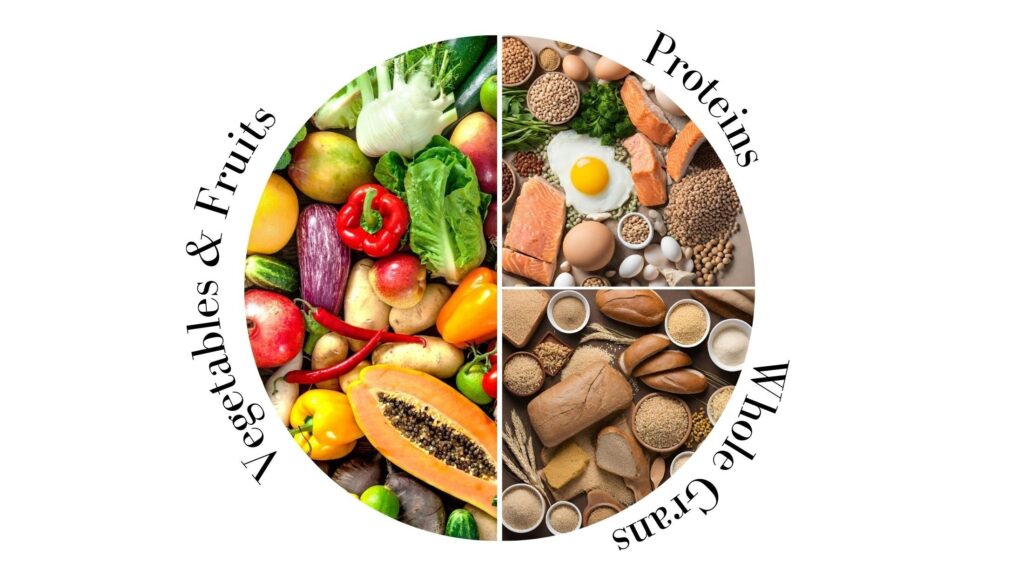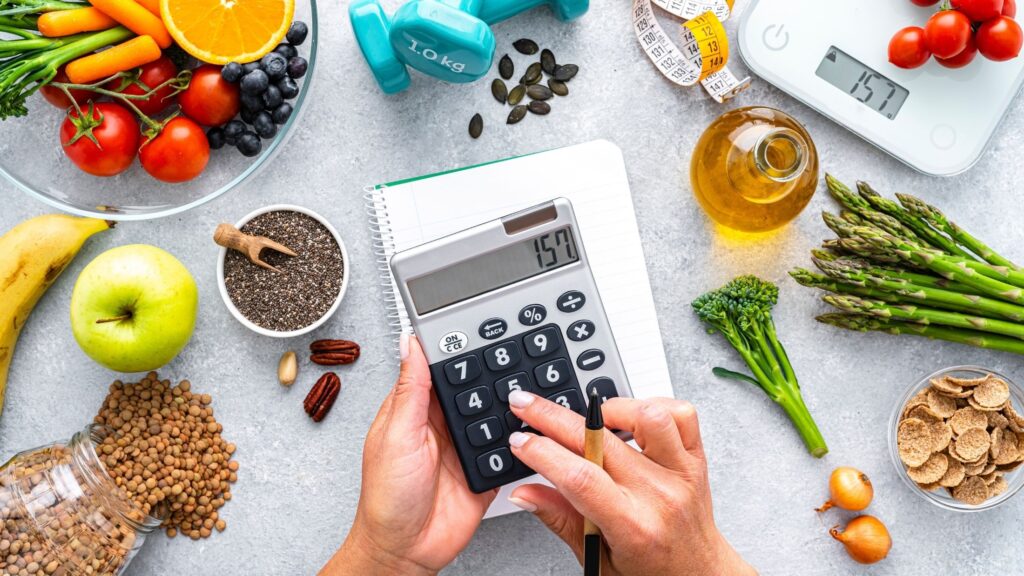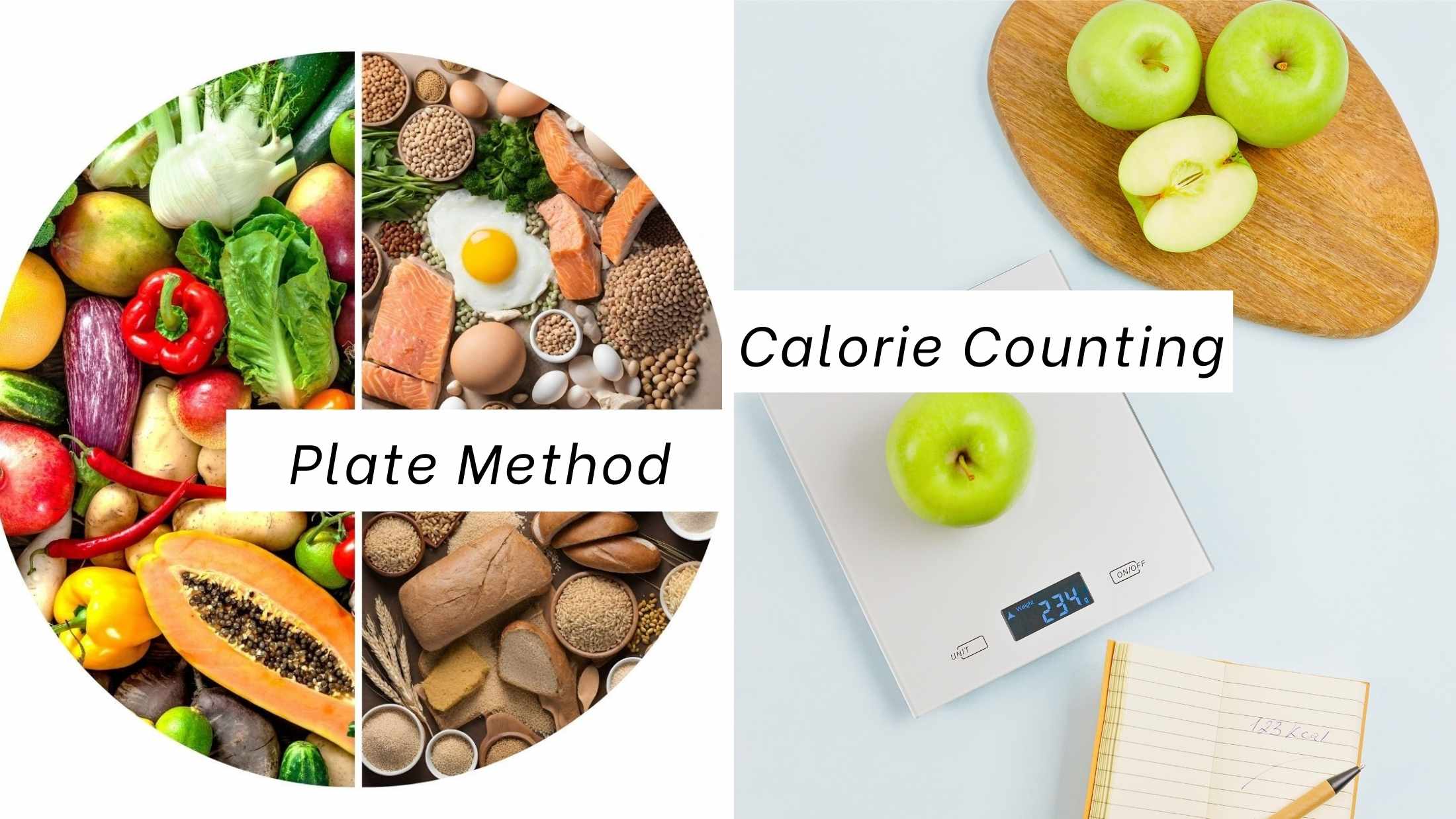If you’re trying to eat healthier, lose weight or simply improve your overall nutrition, you’ve probably come across two popular approaches: The Plate Method and Calorie Counting. So, how do these two strategies compare? And more importantly, which one is right for you, the Plate Method or Calorie Counting?
In this article, we’ll break down the science behind each method, look at the pros and cons, and help you decide which approach best suits your lifestyle, goals and mindset.
What Is the Plate Method?

The Plate Method is a visual approach to healthy eating. Rather than tracking every calorie you eat, it focuses on what your plate looks like at each meal. Typically, the plate is divided into:
- ½ vegetables and fruits (non-starchy vegetables like spinach, broccoli, peppers, or carrots)
- ¼ lean protein (such as chicken, tofu, eggs, or fish)
- ¼ whole grains (like brown rice, quinoa or corn)
This method is promoted by health organizations like the Canada’s Food Guide and the American Diabetes Association. It’s a simple, balanced, and effective tool for managing blood sugar and promoting portion control.
What Is Calorie Counting?

Calorie counting involves tracking the exact number of calories you consume each day. Whether you’re using an app or reading food labels, you tally up the calories in everything you eat and drink. The goal? Stay within a personalized daily target—often based on your age, sex, weight, activity level, and goals.
Calorie counting is rooted in the concept of energy balance. According to the National Institutes of Health, weight loss occurs when you consistently consume fewer calories than your body burn, creating a “calorie deficit.”
The Science Behind Each Approach

Calorie counting has been extensively studied. One 2008 study in the American Journal of Clinical Nutrition found that people who kept a food diary and tracked calories lost nearly twice as much weight as those who didn’t. The method can be highly effective, but it requires discipline.
The Plate Method, while not focused on numbers, is supported by research as well. A 2013 study published in Diabetes Spectrum found that people with type 2 diabetes who used the plate method significantly improved their blood sugar levels and lost weight—without needing to count calories.
Why does it work? It helps reduce portion sizes and encourages high-fiber, nutrient-dense foods that are naturally lower in calories. It also helps prevent mindless eating, a major cause of weight gain.
Plate Method or Calorie Counting: Pros and Cons

Let’s take a closer look at the advantages and disadvantages of both strategies:
Plate Method or Calorie Counting: The Pros
Plate Method Pros
- Easy to understand and follow
- Encourages balanced, whole-food meals
- No need for scales or math
- Less likely to trigger obsession with food
Calories Counting Pros
- Precise and data-driven
- Can help with detailed weight loss goals
- Encourages awareness of hidden calories
Plate Method or Calorie Counting: The Cons
Plate Method Cons
- Not as precise for those with specific calorie needs
- May be harder to apply when eating out or with packaged foods
Calories Counting Cons
- Time-consuming and potentially stressful
- May lead to obsessive eating behaviors in some people
- Can ignore the quality of food in favor of numbers
Plate Method or Calorie Counting: Which Is Right for You?

There’s no one-size-fits-all answer. Your personality, goals, and lifestyle will play a big role in determining which method is best.
Choose the Plate Method if:
- You want a simple, sustainable approach
- You prefer not to obsess over numbers
- You’re focused on long-term health and balance
Choose Calorie Counting if:
- You like structure and tracking data
- You have a specific weight goal or body composition goal
- You don’t mind using apps or logging meals regularly
You can even combine both methods—using the Plate Method as your daily guide while occasionally checking in with calorie targets.
Bottom Line
Both the Plate Method and Calorie Counting can support healthier eating habits and weight management. The key is finding what works for you. Whether you prefer a more mindful approach or thrive with data and structure, consistency is what really drives results.
Remember, it’s not just about weight loss—it’s about building a healthy relationship with food and creating habits you can stick with for life.




Leave a Reply